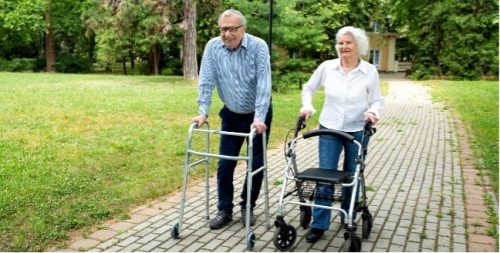- Do you feel like you are having to keep tabs on your aging parent?
- Are you second guessing if mom or dad should still be living on their own?
- Do they need more supervised care with medications or personal care?
There are several hidden warning signs that can be indicators an aging parent needs assisted living care.
- Forgetfulness
- House is a Mess
- Changes in Mobility
- Poor Personal Hygiene
- Not Engaging in Day-to-Day Activities
When observing your adult parent in their living space, you’ll want to keep notes on the following warning signs to assess whether or not they are able to independently care for themselves and their home. You may want to keep a notebook, so you can see patterns of behavior and can share this information with your parent and their physician. This information will be helpful for decision making and for engaging with assisted living counselors when you start evaluating residential options.
When you are making notes about these changes in your aging parent, you’ll also want to observe how they respond to the changes themselves and how they respond to you when you try to discuss these things with them:
- Does it frustrate them? Is the frustration at an acceptable level?
- Can they problem-solve to find a healthy, reasonable work-a-round to the change?
- Do they get anxious, unnecessarily aggravated or belligerent?
- Do they brush it off, even though they changing their behavior as a result and this is affecting their usual quality of life?
Forgetfulness. It may not seem like a “hidden warning” because forgetfulness in older adults is something we typically think of as really obvious. Before forgetfulness gets to the problematic point, it progresses, for most people, at a slow pace. You’ll want to look for consistent, insidious patterns of forgetfulness. This is more than just occasionally misplacing the car keys—something all of us do from time-to-time. When the car keys (or anything else) go missing more than occasionally, and to the point where the keys can’t be found so your parent can’t drive the car, that’s the kind of progression that’s a sign something more serious is going on with memory.
A warning sign for forgetfulness, is your aging parent forgetting to take their medication. Be sure that you are keeping tabs on their dosing—that they aren’t taking too much or too little (or none at all), which could result in a medical emergency situation. Other significant warning signs for forgetfulness include: not remembering where they placed important documents, forgetting to cash checks received, to pay bills electronically or by mail, or placing perishable foods in a cabinet instead of the fridge.
House is a Mess. If your parent wasn’t a messy person most of their life, and their living space starts to look in disarray, that could be cause for concern. Take note of:
- the condition of floors, carpets, counters – have they stopped vacuuming or dusting?
- piles of dirty dishes in the kitchen
- the cleanliness of the fridge – is there spoiled food in fridge?
- trash piles inside / outside the home
- evidence of hoarding
- evidence of pests or insects
- lawn is not maintained
- if they own pets: are the pets toileting in the home? Is the litter box getting cleaned?
These things could be signs of forgetfulness and/or changes in mobility, meaning your parent is no longer able to do these things and is embarrassed to tell you.
Changes in Mobility. The obvious signs are frequent falls and similar mishaps with movement. Before that degree of change, you’ll want to look for these hidden warning signs in your aging parent’s mobility:
- Do they hold onto furniture to move about a room?
- Have trouble standing from a sitting position? Rising from their bed?
- Do they have difficulty navigating even a few steps or the curb?
- Are they avoiding going up or down stairs even though that’s the only way to access a bedroom or bathroom? (In which case—are they washing themselves at the kitchen sink or sleeping on the couch?)
Poor Personal Hygiene.If an aging parent suddenly looks unkept, has body odor, or seems to be wearing the same clothes over again, these are subtle signs they are losing the ability to independently care for themself. So pay attention to these things each time you visit:
- Are they brushing their teeth?
- Are they doing laundry (can they access the laundry room?)
- Are the closets/drawers for clothes organized or in disarray?
- Do they have soap, deodorant, and other personal hygiene products or are they forgetting to buy these things?
- If they usually wore make-up, have the stopped or are they applying it wrong?
Not Engaging in Activities.If your aging parent has discontinued participation in their usual hobbies, social outings with friends, or routine shopping… and this is not due to an acute illness or minor physical set-back, be concerned. You’ll want to talk
Is it Time for Your Aging Parent to Move to Assisted Living?
If you find that your aging parent displays any of these hidden warning signs of not being able to care for themselves and their living space, then it may be time to consider assisted living. This is especially important to do if you are unable to take-on the challenge of caregiving for your parent. Peabody Place offers support from compassionate care staff who can in help you decide about assisted living care that meets your parent’s unique needs. We provide the resources and options necessary for making an informed and affordable choice. Not only do our state-of-the-art residences provide medical attention your loved one may made need, they will also have access to a full complement of recreational, social, emotional, and cultural activities to support their well-being in gracious surroundings.





